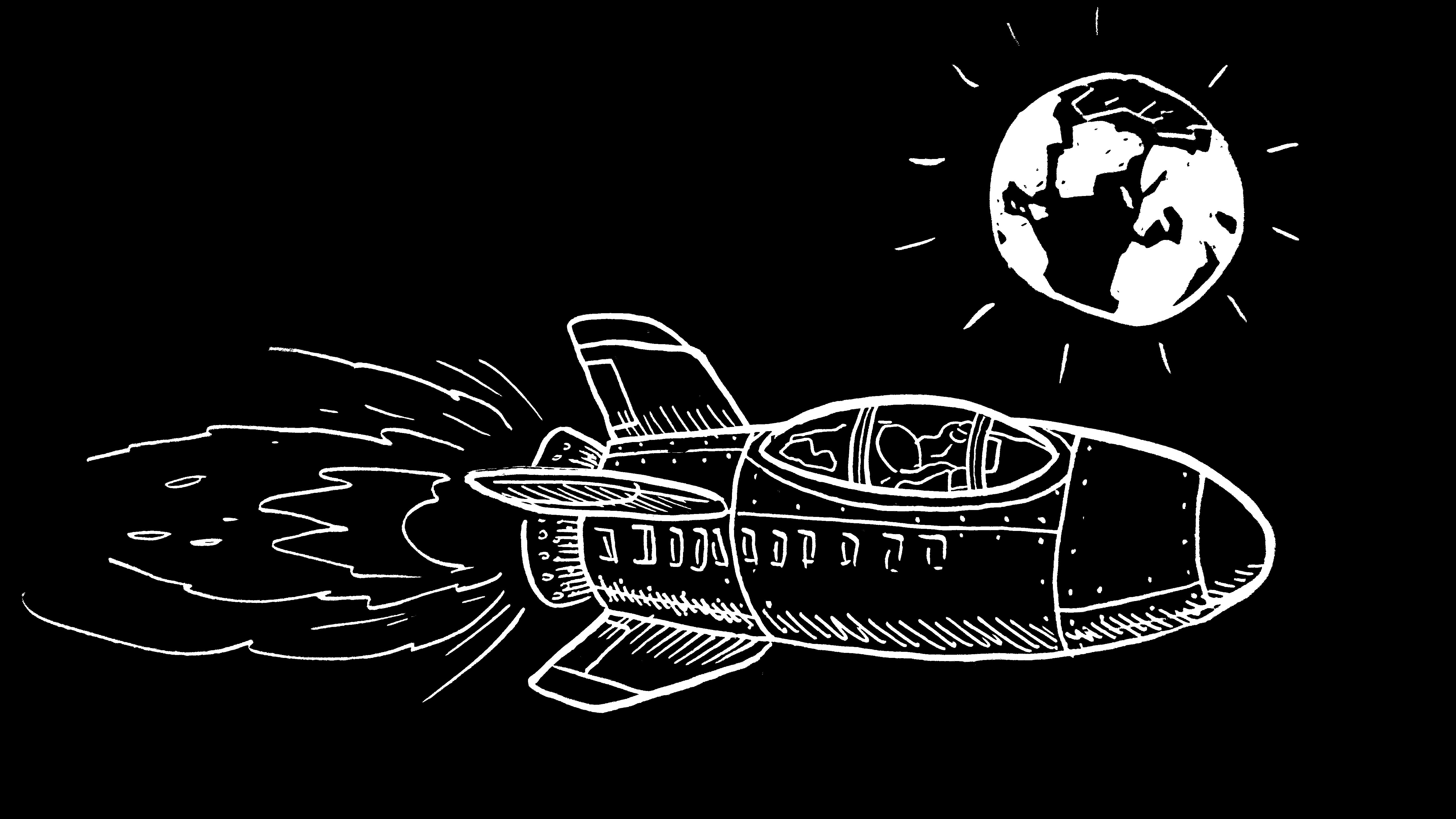To many, science means that people with a liking of acronyms and white coats do things in sterile labs or with complex formulae; things with an air of importance; potentially groundbreaking things; things, which but a handful of people in the world understand. And surly these people also share a love of clumsy acronyms, white lab coats and blackboards full of scribbles.
At least some of these cliches are somewhat grounded in truth. However, the picture they paint has a key ingredient missing: passion! Whoever does science is haunted; addicted to those moments when they catch a glimpse of the beauty of that which is - be it the microscopic world of the cell, where bridges self-assemble and disassemble themselves, while knobbly proteins wobble across at phenomenal speeds; the mysterious quantum world, where thing generally run counter to our intuitions fostered by the “big world”; or cosmic ballets, where celestial bodies are formed from stardust, and bend space and time. For these glimpses, they take it on with their own ignorance, and pay the price of hitting the proverbial wall over and over again, before they broaden their horizon (just a little bit).
Yet, for us all to profit from these singular events of broadening of one’s horizon, in order to better cope with the complex world that surrounds us, science needs to be communicated. Not as an end in itself, but in a manner that’s integrated into the research process. This is where we see our responsibility as scientists towards society, and our mission as a science collective. Following this route promises to be fascinating, for the stories we know to tell are breathtaking. With artists at our side, we’re certain to be able to tell them in exciting ways. Yet, we do not intent to focus on telling stories alone, but plan to open our workshop and work process, share our resources, be a source of advice and help, conduct research alongside interested members of the public, and be a partner in all sorts of tinkering projects.
There are a lot of exciting projects in store for 2019! To stay in touch, subscribe to our brand new newsletter, or even become a supporting member by emailing joinus@biotop.co.
About the authors
Anna Köferle studied Molecular and Cellular Biochemistry at the University of Oxford and then completed a PhD at University College London. She is interested in gene regulation, epigenetics and everything to do with the gene editing tool “CRISPR”. Since starting as a researcher at Ludwig-Maximilians-Universität in Munich two years ago, she has also developed some interest in topics relating to neurobiology.
Wolfgang Schütz, is an illustrator and game developer from Villach. His studies of multimedia art led him to Salzburg where he’s been living for the past ten years. He started to work as a freelancer under the synonym Stulowitz in 2018.
Lukas Hutter studied chemistry in Graz and Systems Biology at the University of Oxford. He is a co-founder of Biotop and works as a teacher in Villach.
